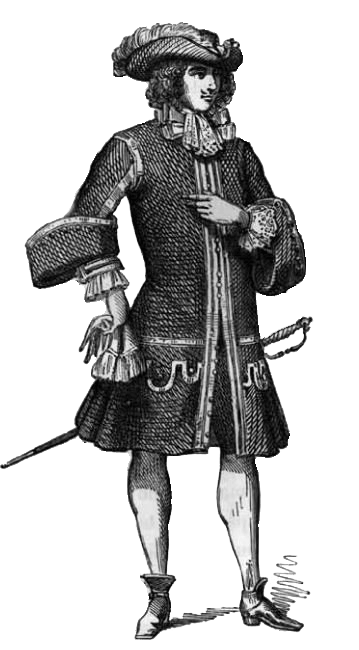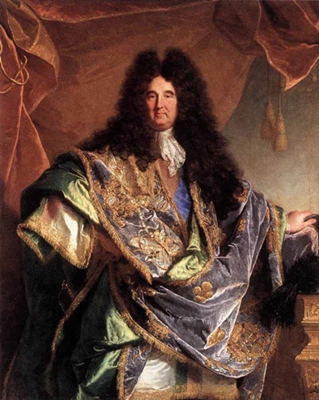Dangeau’s Diary, April 1685

2nd. — The King bought the Hôtel de Vendome at Paris. It cost him two hundred thousand crowns for the creditors, and six thousand louis to Monsieur de Vendome (Louis Joseph de Bourbon, Duc de Vendôme). It will be converted into an elegant square and the King will raise at least two hundred thousand francs, by the ground to be disposed of, exclusively on the building materials, which will produce fifty thousand francs.
3rd. — I learnt that Madame de Montespan had let Clagny and Glatigny for twenty thousand francs. The King has given her these two estates, which donation was made the commencement of the year, and was registered in the chamber of accounts at the court of aids. These estates are entailed upon the Duc du Maine (Louis Auguste de Bourbon, second child of Madame de Montespan and Louis XIV as well as his most favoured child) and his male children, and, in case of their failure, upon the Comte de Toulouse (Louis Alexandre de Bourbon, third born son of Madame de Montespan and Louis XIV), and his male children, in default of whom these lands revert to the crown. In future the King will have no concern with the repairs of the house, gardens, or park. Previously to this donation, these seats were at the command of Madame de Montespan, although she did not receive the revenues of them.
10th. — The Doge of Genoa has arrived at Lyon, where he will reside a few days. The resident has written to him to remain there until arrangements are made here. He will take up his abode at the Hôtel de Beauvais in Paris. The King intimated to Madame de Thianges (Gabrielle de Rochechouart de Mortemart, sister of Madame de Montespan), that for the sake of her health, he wished that she would not undertake the journey to Rome, but would allow the Duchesse de Sforza (Madame de Thianges daughter Louise-Elvide) to return without going to fetch her. Madame de Thianges accepted to the King’s advice and the journey is no longer spoken of.
11th. — We saw in the gallery, among several statues and vases brought from Rome, two porphyry vases recently carved. The secret of carving porphyry has lately been re-discovered, after having been lost for more than one thousand years.
13th. — The Prince sent for the agents of the Princes de Conti and told them, that since it was not possible to oblige those Princes to return, they must forward them all that was necessary to perform the journey with becoming dignity and that they must procure them whatever money they might want. (See Dangeau’s Diary, March 1685)
15th. — The King broke the Chevalier de Sillery, colonel of the Conti regiment of infantry, and the Chevalier d’Angouleme, colonel of the Roche-sur-Yon regiment of cavalry, for having accompanied these princes.
18th. — The King learnt, upon coming in at night, that the Doge of Genoa had arrived at Paris, having come from Lyons. A statue found by Messieurs d’ Aries, about twenty years since, in the ruins of an ancient Roman building, and by them presented to the King, was placed in the gallery. There were great disputes among the learned, whether it was a Diana or a Venus. The connoisseurs, however, at length decided that it was a Venus.
20th. — I have been informed that the King of England, James II, caused it to be intimated to Mademoiselle Chelzoy, whom he honoured with his friendship when still Duke of York, that if she would retire into France, he would allow her a sufficient income to live magnificently and that she answered she would not carry her shame among strangers. When the King pressed her a second time to take that step, that it might not be said, if she resided in England that she exercised any influence over him, she replied that his Majesty was all powerful and that he could cause her to be torn piecemeal by four horses, but that he could never force her to consent to a separation from him.
21 st. — The King received the sacrament at the parish church, from the hands of Cardinal de Bouillon. He afterwards touched thirteen hundred diseased persons.
22d. — The Dauphine, displeased at some foolish petitions from the actors, begged the King to dismiss Baron and Raisin, the two best comedians of the company, the one in tragedy, the other in comedy.
28th. — We walked a long time in the kitchen garden and learnt that the King did not allow Monsieur de la Quintinie a larger pension than 2000 francs, and that he had made a contract with him for all the expenses of the kitchen garden. He gives him 18000 francs per annum for the gardeners and all the other necessary charges.

